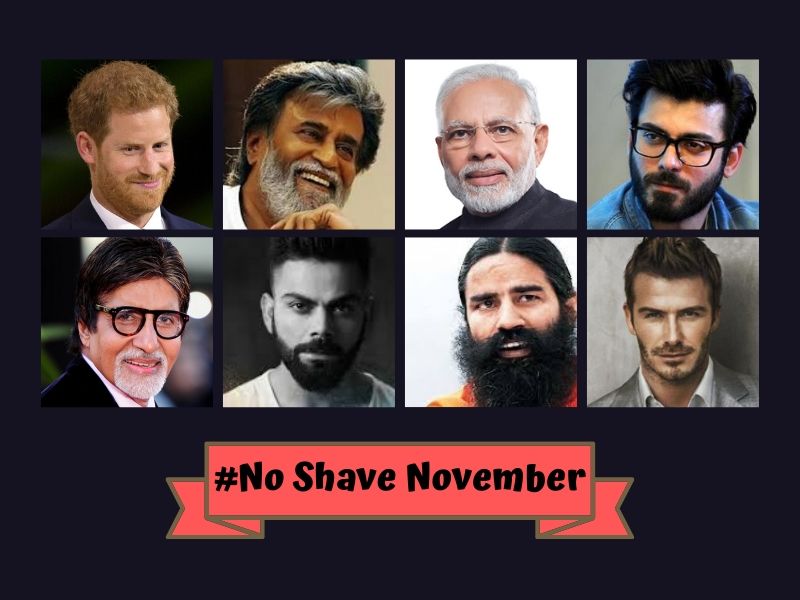
It is that time of the year again – the ‘no shave November’, or more famously known as Movember. While most of us associate it with a mere social media trend, it has a rather noble and thoughtful connotation with it. It sees men giving up shaving and grooming for a month, and by the end of it, people donate it to cancer patients and survivors. Additionally, participants are encouraged to donate the money towards cancer research and for providing better facilities for cancer treatment.
While no shave November and Movember are used interchangeably, they are two initiatives started by different charity groups. The older of the two, Movember Foundation was started by a group of 30 people in Melbourne in 2004 who decided that they would go without shaving for 30 days to raise awareness on prostate cancer and depression in men. Over the following years, the movement grew and was emulated in several other countries. In 2012, Movember Foundation was ranked among the world’s top 100 non-profit organisations by Global Journal. On the other hand, On the other hand, the no shave November was started by the Chicago-based Hill family. After Mathew Hill passed away in November 2007, after a prolonged 18-month battle with colon cancer, his eight children started this initiative to raise money for cancer research. There is just one rule-donate the money saved on shaving and grooming towards the cause by registering as a participant on the website.
Interestingly, while ditching the razor to raise awareness has been a relatively modern phenomenon, the practice in itself dates several decades back. Giving up shaving for a specific period of time was first introduced by Athenian philosopher Plato. He believed that one of the best ways to embrace the acquisition of knowledge was to don full god-like beards for 30 days. Plato’s student and Greek philosopher, Aristotle agreed with him and he mentioned the same in his Nichomachean Ethics, where he wrote, “…no man can be trusted if he is without a beard. For that reason, beard growth training is as important as proper training in ethics.”
More recently, socialist revolutionary Karl Marx used not shaving as a tool of rebellion. In an attempt to upset the bourgeois, he encouraged factory workers to grow their beards. He was aware of the fact that factory owners wouldn’t like their workers to have long beards for the fear of being injured by the industrial machines.























